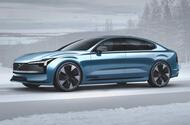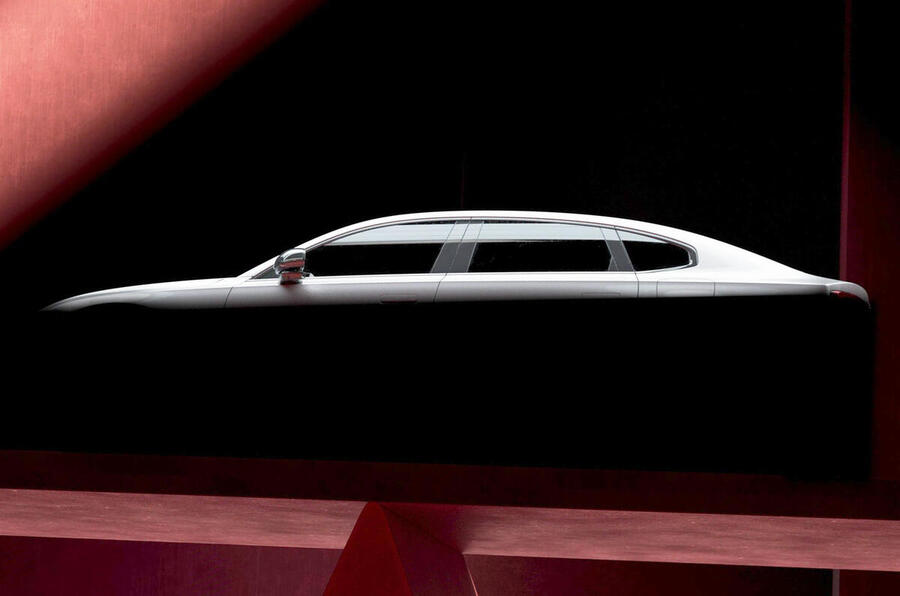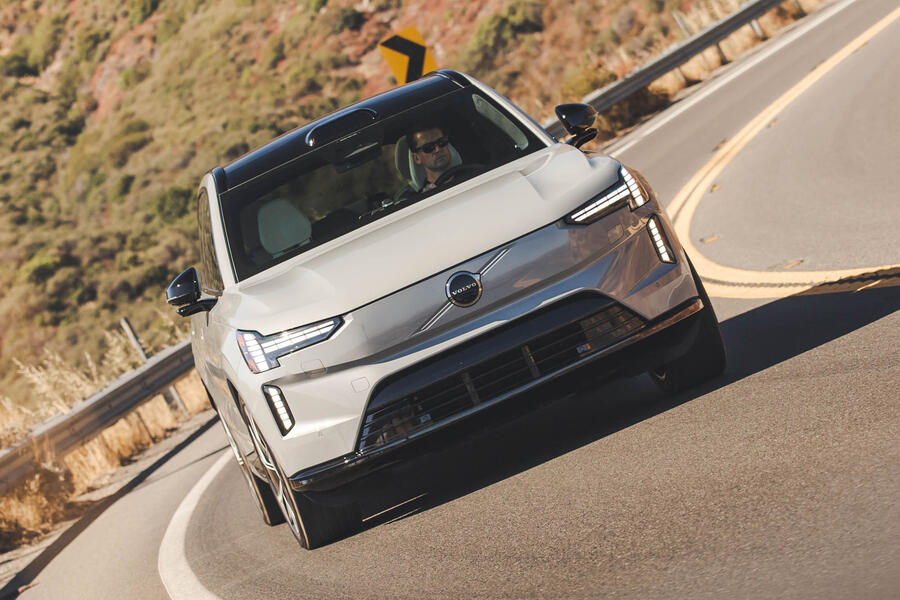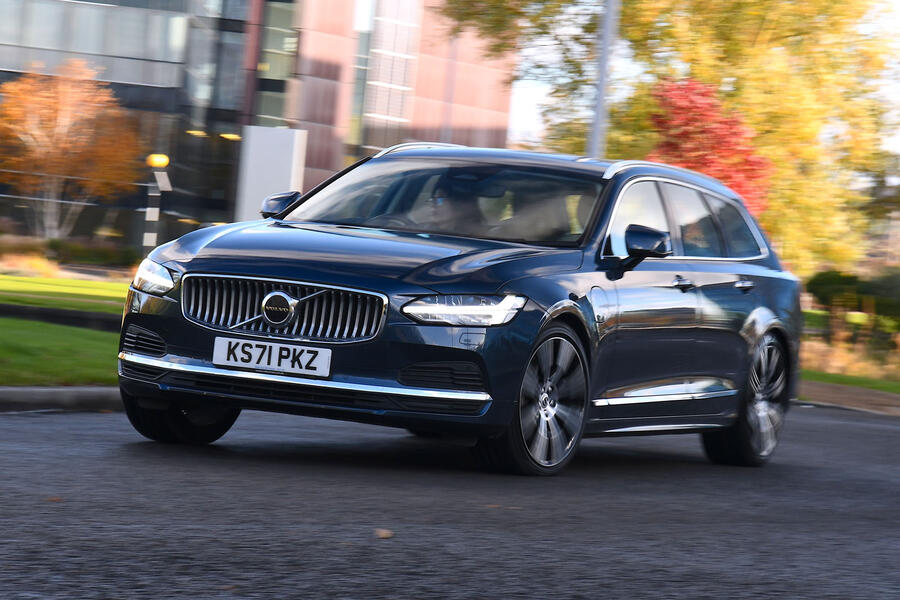Recent Updates
11/13/2024 12:00 AM
New Porsche Taycan GTS brings 'all-rounder' performance for £117k
11/13/2024 12:00 AM
Electric BMW 3 Series spotted: first look at reborn i3 for 2026
11/12/2024 12:00 PM
Dealer finance under fire amid crackdown on 'secret' revenue
11/12/2024 12:00 PM
London to Brighton at 18mph: 60 miles in a 122-year-old car
11/12/2024 12:00 PM
Chemical soup: how electric car batteries are made
11/12/2024 12:00 PM
Caterham launches Seven CSR Twenty special for £80,000
11/11/2024 12:00 PM
New BYD Sealion 7 gets 523bhp and 311 miles of range
11/11/2024 12:00 PM
Used Jaguar E-Pace 2017-2024 review
11/11/2024 12:00 PM
Volvo ES90: BMW i5 rival lands in March to kickstart EV onslaught
11/10/2024 12:00 PM
A trip down memory lane in a Jowett Javelin
EV, Hybrid, Hydrogen, Solar & more 21st century mobility!

ES90 will serve as the premium flagship in a wave of five advanced EVs...ES90 is the first of five all-new electric Volvos set to use advanced tech
Volvo is gearing up to launch the ES90 as its first electric saloon early next year – and it will serve as a premium flagship for the firm’s next wave of five advanced EV models.
The new BMW i5 and Mercedes-Benz EQE rival is a sibling model to the combustion-engined S90 and will be revealed next March at an event in Stockholm, Sweden. It has been developed with a focus on the Chinese market, although it will be sold worldwide.
The ES90 will be closely related to the EX90 electric SUV and, much like that model, will serve as a technological figurehead rather than a driver of sales volume.
It will be followed in 2026 by the new EX60, which will sit on a new-generation platform and, as the EV equivalent of the bestselling XC60 in the core medium SUV segment, will be key to growing Volvo’s electric car sales.
Volvo currently has three further EVs in development. The new platform beneath the EX60 will accommodate a wider range of bodystyles, potentially including an electric estate. And while Volvo is still focused on ultimately becoming an EV-only brand, it has delayed plans to end the sale of plug-in and mild-hybrid models and is instead set to refresh and renew its combustion-engined lineup in the coming years.
ES90 saloon to be new premium range-topper

The ES90 will be the fifth series-production electric Volvo model to be offered in the UK – following the EX30, XC40/EX40, C40/EC40 and EX90 – but the first that isn’t an SUV. (Volvo also offers the EM90 MPV in China.)
That reflects the current sales dominance of SUVs but, speaking recently, Volvo boss Jim Rowan said the firm will continue to offer a diverse line-up in future. “We have MPVs as well as sedans [saloons] and wagons and of course SUVs,†he said. “We’re in a nice position as a company that we have that spread.â€
Rowan added that even though SUVs are likely to continue to make up the bulk of sales, there was enough profi t to justify launching an electric saloon. “We’re 1% of the car market and we’re in premium,†he said. “There is still a demand for premium saloons in the electric age. We see more of that [demand] in China, but there’s still demand in other parts of the world.â€
Rowan noted that Chinese premium buyers prefer saloons with “really long leg room†in the back and said the ES90 will be developed with that market as a core focus.
Volvo’s preview image of the ES90 confirms that the model will feature a similar side profile to that of the current hybrid S90 and it will also take styling cues from the EX90, including the closed-off grille, ‘Thor’s hammer’ headlights and upright rear lights.
The ES90 will sit on the bespoke electric SPA2 platform that is used by the EX90 and it is likely to be a close technical relation to that model.

Information leaked last year shows that the model has been developed under the codename V551 and will be produced at a plant owned by Volvo parent Geely in Zhejiang, China.
The leak reveals that the ES90 will be 4999mm long, making it marginally longer than the S90, and have a wheelbase of 3100mm to maximise interior space. It will be offered in single-motor rear-wheel-drive and dual-motor all-wheel-drive forms. Power outputs are likely to match the EX90’s, suggesting that the all-wheel-drive model will be offered with 402bhp as standard and 502bhp in Performance form. It is also likely to offer many of the EX90’s safety features, potentially including the lidar scanner, and have a similar, near-£100,000 price.
Power will come from a 111kWh battery that will offer up to 373 miles for the single-motor model. As with the EX90, the vehicle will be built around an advanced Volvo Cars Superset ‘tech stack’, which effectively comprises all of the software and hardware for the drive, infotainment, autonomous functions and other systems. That set-up will be used on all future models and offers over-the-air updates. The goal is that it will eventually allow updates to be rolled out across all Volvo models.
EX60 to help drive mainstream EV uptake from 2026

The XC60 has long been Volvo’s best-selling model, with Rowan describing it as the “workhorse†of the line-up, so it is notable that Volvo has waited for EV technology to develop before launching an electric equivalent. But that model, the EX60, will arrive in 2026 and Volvo chiefs have previously described it as a “huge boost†in the firm’s electrification plans.
Notably, the EX60 will be the first model to use the new SPA3 platform, which is effectively a heavy development of SPA2. It will feature deeper integration of the core computing software stack, but the primary focus is that it’s designed to be far more scalable: Volvo says it can accommodate cars smaller than the EX30 and larger than the EX90.
The platform will also enable the use of parts produced by megacasting, a process that Volvo will introduce at its main Torslanda factory in Gothenburg. This will allow entire sections of cars to be produced as single parts rather than as large numbers of individual parts, with the rear floor section of the EX60 likely to be the first to benefit from it. This method cuts production costs, increases rigidity and makes the parts lighter.
Few technical details of the EX60 have been revealed but, like the ES90, it will be offered in singleand dual-motor forms and use the same advanced infotainment system.
Electric estate on the cards for future line-up

The arrival of the ES90 and EX60 will give Volvo six EVs in the European market. Three further models are also in development, with Rowan saying that “some of them will be an electrification of our current models and some will take us into new segmentsâ€.
The only models in Volvo’s current combustion line-up that aren’t confirmed to get a direct electric equivalent are the S60 saloon and the V60 and V90 estates. Volvo has a rich history of estates, but the demand for such models has waned in recent years and they aren’tpopular in the crucial Chinese market. However, when asked about electric estates recently, Rowan hinted that the firm is “looking at thatâ€.
The prospect of electric estates could be heightened by the new SPA3 platform, because with all cars based on a single platform and tech stack, it would be easier to produce different variants on the same production lines, which would potentially enable Volvo to expand its line-up more efficiently.
Erik Severinson, Volvo’s planning chief, recently told Autocar that “we have almost underestimated the power†of having a single tech stack and platform.Â
He added: “If you do all your cars with unique technological solutions, you’ll spend all your time and efforts just keeping stuff updated. It’s a hell of a work just to manage your variant complexity. But if you have them all on the same tech stack, it creates freedom to make the cars better.
“That’s why SPA3 and the tech stack is such an important part of our journey. If we have that architecture in all our plants, and all our products based on it and a single computing system, we can focus on making the cars better. That will give us a lot of flexibility going forward.â€
Hybrid and plug-in models to be refreshed
Volvo recently rowed back on its aim to sell only EVs by 2030, which Rowan described as a “pragmatic†move that reflected the slowdown in EV sales growth. The firm is now aiming for EV and PHEV models to account for at least 90% of sales by 2030, with the rest mild hybrids.
Partly in response to that, Volvo is set to refresh much of its combustion line-up in the coming years, following the revamped XC90 that was unveiled earlier this year. This could include substantial updates for the current XC60, which dates from 2017, and the XC40.
Although Severinson declined to comment on individual products, he highlighted strong sales of the XC60 PHEV and said: “In times of unpredictability, flexibility is important. We have very strong plug-in hybrid offerings and that is something we will continue to invest in to make sure we maintain our strong position with those products.â€
